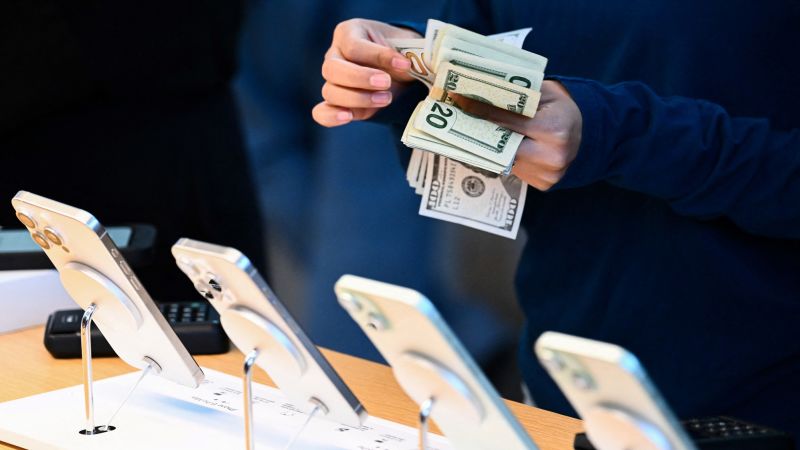US economic growth was even stronger in the third quarter than previously estimated, underscoring the economy’s remarkable resilience in the face of elevated inflation and high borrowing costs earlier this year.
Gross domestic product, the broadest measure of economic output, rose at an annualized rate of 5.2% from July through September, according to the Commerce Department’s second estimate, released Wednesday morning. GDP is adjusted for inflation and seasonal swings.
Wednesday’s latest reading reflects an even faster pace of growth than the blistering 4.9% rate the department initially estimated. It factors in greater business investment, government outlays, residential investment and inventory growth.
Nonresidential fixed investment, or business spending, was revised up to a growth rate of 1.3% in the third quarter from a decline of 0.1%. Residential investment, which generally reflects conditions in the housing market, was revised much higher, to 6.2% from 3.9%.
Meanwhile, consumer spending, America’s main economic engine, was revised slightly lower, to 3.6%, down from the 4% in the initial estimate. That’s still a solid pace of growth.
After a robust third quarter, the US economy is widely expected to grow at a much slower rate in the final months of the year as pandemic savings dwindle and interest rates remain at a 22-year high.
Consumer spending seems solid for now: Black Friday and Cyber Monday sales this year were record setting, according to Adobe Analytics.
Fourth-quarter spending likely won’t be as piping hot, however. Retail sales fell in October for the first time in seven months, declining 0.1% that month from September.
Real-time estimates of fourth-quarter GDP are also reflecting a slower pace of growth. The Atlanta Fed is currently projecting fourth-quarter GDP to come in at a 2.1% annualized rate.
This story is developing and will be updated.
Read the full article here




